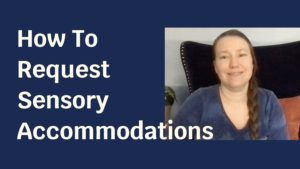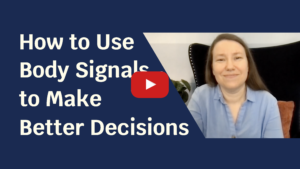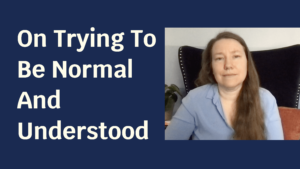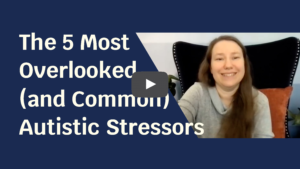
How To Request Sensory Accommodations
It can be hard to convey what you need when requesting sensory accommodations. Here’s a framework for how.

It can be hard to convey what you need when requesting sensory accommodations. Here’s a framework for how.

This phrase has helped me gradually shift from a negative outlook on sensory issues, socializing, and myself, to a tendency toward looking for the good.

If decision making is hard for you, here’s a technique to use body sensations as another source of information for decision making.

Trying to be normal as a way to be understood is a self-defeating. People who learn about you, will only learn about this pretend version of you.

It can be intimidating to ask someone to do something for you, yet we all have to do this. I’m going to discuss an approach I’ve pieced together on how.

Autistics and neurotypicals tend to have very different views on small talk. What’s going on from both sides?

People react to different amounts of sensory input, but even when it’s only a little, it’s not made up.

The Fourth of July celebrates the signing of the Declaration of Independence, not of actually gaining independence. That took several more years and they had to fight for it. Hard.

There are good reasons why job interviews are such strange experiences. Here are a few.

Here are five things that are so common in our modern lifestyle, that we often don’t have a chance to experience life without them, so we don’t see how much they affect us.

Theory of Mind is often pointed out as an autistic deficit, but is it really that? Is something else going on? And is it just autistics that find this challenging?

I talk a lot about body feelings, like noticing your hands. But what does that have to do with making friends?